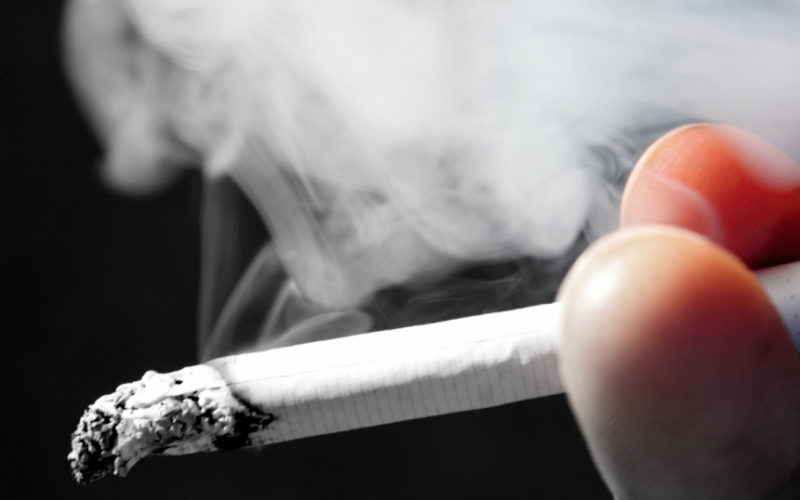Nigeria is the most populous black nation with an estimated population of 200 million people. Nigeria has a predominant youth population with the proportion of children under the age of 15 in 2010 standing at 44.0%. The tobacco industry targets no other nation than the type that fits Nigeria’s profile in terms of population, vibrant youth, low- and middle-income earners. The tobacco industry needs this mix to replenish a dying generation of current tobacco addicts.

A country with not so strong tobacco control legislation is the kind of place the tobacco industry pitches their tent. The paltry tax imposed on tobacco products in Nigeria which stands at 20% is yet another incentive that the government is unknowingly giving to the tobacco industry; while the World Health Organisation (WHO) recommends 70% tax on retail prices, making tobacco products extremely affordable even to school children.
Nigeria enacted the National Tobacco Control Act in 2015. The Act stipulates that the Federal Ministry of Health should develop a set of Regulations for the implementation of the law and the Regulations must be approved by the National Assembly. Strange as this provision sounds, after strenuous efforts by tobacco control activists in partnership with the Federal Ministry of Health it was approved by the National assembly. It is however yet to scale the last hurdle which is gazetting. While stakeholders are justifiably concerned why the gazetting has not happened after the May 2019 approval by the Parliament, the Federal Ministry of Health and the Federal Ministry of Justice need to as a matter of urgency get it gazetted to set the stage for the full implementation of the Act.
We cannot over-emphasise the fact that the NTC Act is crucial to the safety and wellbeing of all Nigerians. Tobacco use constitutes a major danger to the health and wellbeing of not only the users but everyone in the environment of the user and the immediate environment. Several million of Naira are lost yearly to tobacco use through illnesses and loss of human capital let alone families and dependents that suffer bereavement and impoverishment due to the sickness and death of their loved ones formerly addicted to tobacco use.
Second-hand smoke also constitutes a major danger to innocent people in the neighbourhood of smokers. People inadvertently inhale high cocktail of dangerous carbon monoxide and other poisonous gases which can result in cardio pulmonary conditions that, even if dormant in them, could manifest in their offspring as full-blown cases of fatal illnesses like asthma, bronchitis, cystic fibrosis, emphysema, pneumonia and lung cancer, among others.
The tobacco industry is never tired of finding clever ways and means of rebranding, re-introducing and marketing their lethal products. The invention of flavoured tobacco products is another way to get the adventurous youth population especially women addicted. The flavour which makes the product seem less pungent and more attractive is like its counterpart dangerous product – shisha, also called hookah, narghile, waterpipe, or hobble bubble smoking.
Shisha is a way of smoking tobacco, sometimes mixed with fruit or molasses sugar, through a bowl and hose or tube. The tube ends in a mouthpiece from which the smoker inhales the smoke from the substances being burnt into their lungs. Shisha took the Nigerian market by storm in the later part of the 2000s and has since become a trendy and fashionable pastime among the youth population in Nigeria. They are openly displayed in lounges across.
Interestingly, this same product has been banned in Kenya, Tanzania and Rwanda among a host of countries on the continent. Heat-not-burn products are also new in the market. Around 8.8 million consumers have already chosen to switch from cigarettes to this product. At the heart of this product are sophisticated electronics that heat specially designed heated tobacco units. Heat-not-burn tobacco products heat up tobacco using a battery-powered heating system. As it starts to heat the tobacco, it generates an aerosol that contains nicotine and other chemicals, that is inhaled. They also generate smoke. These devices are made in very fashionable, portable, covert and trendy. Sadly, the products have found their way into the Nigerian market and are being circulated in stores and online.
Vaping device is another product that is getting wide acceptance among the youths. The dangers inherent in the use of this product only became public with the recent reported vaping epidemic in the United States is a clear warning to developing countries like Nigeria to take the health of her citizens serious.
There are more than enough studies that have shown that all these novel products are as additive and dangerous as the conventional tobacco products if not even more. Therefore, the Nigerian government should not fold its arm and allow the country to become a dumping ground for all sort of untested products to the detriment of the health of the unsuspecting populace. It is believed that Nigeria suffers economic losses of over $800 million annually to the smoking of tobacco products, especially cigarettes.
The Regulations approved by the National Assembly in May 2019 covers health warnings and packaging, smoke-free areas, prohibition of tobacco Advertising, Promotion and Sponsorship, protection from Tobacco Industry Interference, enforcement and licensing among others. The prompt gazetting of the Regulations and the immediate commencement of the implementation by the Federal Ministry of Health will help control the tobacco scourge, save the health of the public and prevent the country from losses to avoidable health burden and loss of human capital.
This is the best gift the Ministry can give to Nigerians. It will not be wrong to assert that every single life lost to tobacco related diseases henceforth are because of the delay in the implementation of the NTC Act and its Regulations.
By Olu’Seun Esan, Programme Coordinator, Nigeria Tobacco Control Alliance (NTCA) (oesan@ntcang.org)
